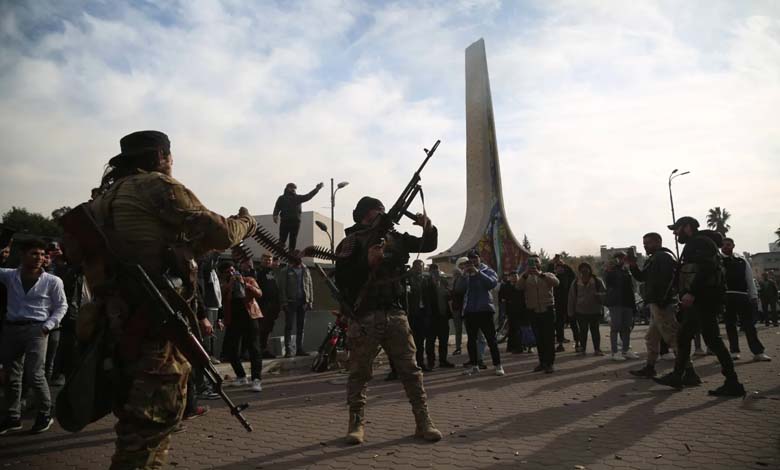The fall of Al-Assad Sparks Political Debate in Iran
Reformists accuse Tehran’s government of failing to accurately assess the region and of making a flawed analysis of the Syrian issue.

The ousting of Bashar al-Assad‘s regime in Syria has sent shockwaves through Iran, prompting reformists to accuse Tehran’s government of a “failure to understand the region” and a poor analysis of the Syrian situation. All indications suggest that Iran has suffered a significant setback with the sudden loss of the Syrian arena, despite statements from some officials claiming that the event will not affect Iranian policies in the region or its proxies.
-
After Al-Assad’s Fall… Syria Closes Its Doors to the Houthis
-
“Bashar al-Assad’s Fall: The Map of Armed Groups Under the Banner of ‘Hay’at Tahrir al-Sham’”
Statements by Iran’s Supreme Leader, Ali Khamenei, and some Revolutionary Guard leaders about the role of Israeli, American, and Turkish intelligence in the fall of the Syrian regime, as well as claims that Iranian influence remains unaffected, no longer seem convincing.
Iran had been the primary supporter of the Syrian regime, alongside Russia, throughout the civil war that began in 2011 when Bashar al-Assad’s regime sought to suppress popular movements calling for freedom. Throughout the conflict, Iran mobilized substantial resources, including sending armed militias it trained and organized to Syria to fight against opposition forces.
-
Al-Assad’s Fall Weakens Iran but Doesn’t End Its Capabilities in the Middle East
-
Washington Warns al-Assad against Using Chemical Weapons in Response to His Defeats
Reformists in Iran opposed the use of national resources to support militias and other means in Syria, especially amid Iran’s economic struggles.
The fall of the Baath regime, which ruled Syria for 61 years, has reignited reformists’ criticisms of the Iranian government.
In a Telegram post on December 9, reformist politician Mahmoud Sadeghi stated that Iranian intelligence services had warned him against criticizing the Iranian regime regarding developments in Syria.
-
Maher Al-Assad Abandons Hezbollah to Avoid Israeli Strikes
-
Israel Prepares for Worst-Case Scenarios in Syria
In his message addressed to Khamenei, he wrote: “The Ministry of Intelligence contacted me and other political activists to warn us against linking the deposed Syrian regime to Iran.”
Despite this, Sadeghi addressed the Iranian government in a post on the X platform, saying: “Learn from what happened to the al-Assad family.”
Reformist politician Abbas Abdi also accused Tehran’s government of flawed analysis of the Syrian issue in an article titled “Cognitive Failure” published in the Iranian newspaper Etemad. He noted that Iranian policymakers suffered a significant informational and analytical failure regarding Syria before their military defeat.
-
Al-Assad meets Khamenei and Raisi in Teheran – Details
-
From Al-Qaeda’s veil to the political shirt: Who is Abu Mohammed al-Julani?
He stated that those who could not foresee such a large-scale defeat in Syria lack the ability to conduct sound analyses. He asked: “Why should others accept their irrational analyses and empty promises? They claimed victory ten minutes before al-Assad fled.”
Abdi further stressed that the failure to correctly assess regional realities has undermined Iranian propaganda and strategic policies over time. He added: “The al-Assad issue may now be over, but our current problem lies in this severe weakness in intelligence and analysis in the official perspective on Syria. This weakness is more critical than economic, military, or political shortcomings.”
-
Washington Follows the Events in Syria… What about “Hayat Tahrir al-Sham”?
-
A New Study Outlines Possible Scenarios for Syria’s Future
On December 8, Syrian factions seized control of Damascus, the capital, as well as other cities before it, with regime forces withdrawing from public institutions and streets. This marked the end of 61 years of Baath Party rule and 53 years of al-Assad family dominance.












